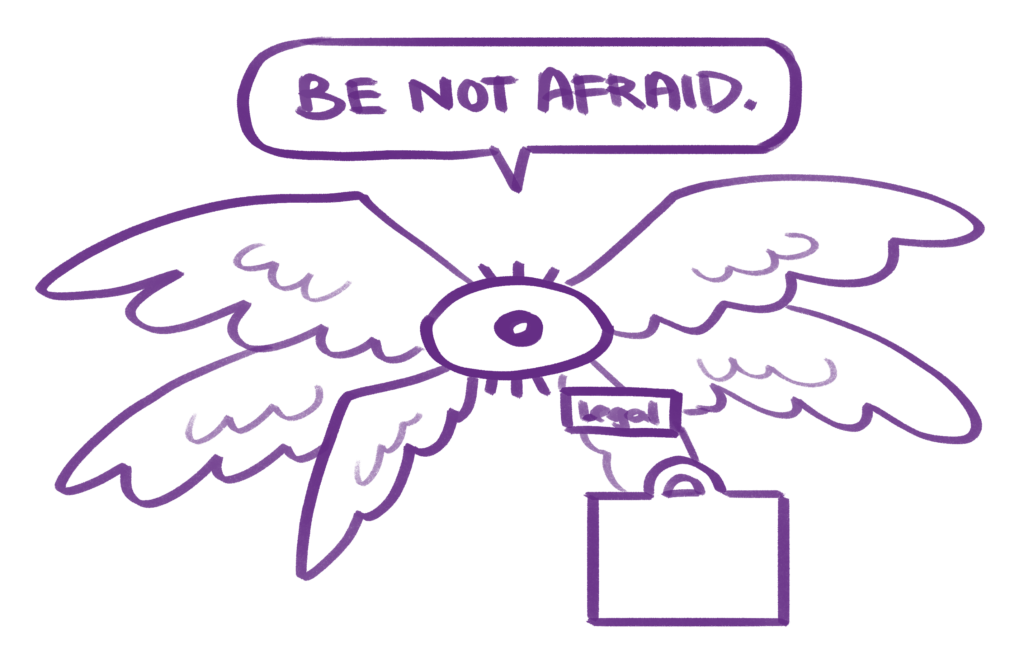Contractors in the games industry are nothing new, but with more and more stories about large-scale layoffs in the games industry (an estimated 9000 workers in 2023 and most recently 25% of Unity’s workforce), there is an increasing and valid scrutiny into the rise of contract work as a means of replacing permanent employees for cheaper. The deliberate misclassification of employees for contractors, or sham contracting, is a serious issue in any industry, but especially rampant in the games industry.
These are all true concerns about contract work and symptoms of much larger issues relating to regulation, worker protections and corporations’ endless pursuit of profit. In light of this, we wanted to share our knowledge and experience as a consultancy that has hired independent contractors for work and has experience being consulted for work (As a studio, and as individual contractors.) We hope the following tips about finding sustainable contract work will help those intending to pursue it.
Note: We do not offer legal advice, we are only sharing some of our knowledge and experiences.
What is an independent game contractor?
Firstly, contractors are independent, meaning they are considered a business entity separate from their contractees. In the context of the games industry, contractors are engaged by a business/game studio to provide their services for a specific time period / provide specific deliverables for anything from programming, art, music and much more.
To understand the difference between an employee and a contractor, check out the table below from the Australian government about common indicators.

In addition, Game Workers Australia highlights several online tools from the Australian government to assist with distinguishing between the two types of work.
- Independent contractors decision tool (business.gov.au)
- Employee/contractor decision tool (ato.gov.au)
Benefits of being a contract worker in games:
Variety of projects and ability to be selective of what you work on
Being independent means you can select the type of work you’d like to do. For example, if you are a sound designer, you could select diverse game genres to work on, or be as niche as you’d like.
Paid more in cash + higher monthly salary
For your expertise and additional risk as a contractor, your base hourly/daily rates should be higher than average permanent employees of the same experience level. In addition to this, part of your income isn’t being withheld for taxes, meaning you receive more cash. If you were a permanent employee, your employer would withhold some of your pay for taxes or PAYG withholding.
Work according to your work/life balance
Depending on the contract, it is likely that you will be able to enjoy greater flexibility over your work hours. For example, being able to block out how many hours a day you would work, when, and where you will work. In addition, taking breaks in between contracts, or even taking on several projects at once.
Risks of being a contract worker in games:
Lack of employee benefits and safety nets
As a contractor, you do not get the benefits a permanent employee would. Your contractee is not obligated to make Super contributions* on your behalf, provide health insurance, health benefits, paid annual leave and sick leave**. There is also no minimum wage or pay rate, as these would be determined by yourself and your agreement with the contractee. (While we don’t offer specific financial advice, it’s extremely risky entering agreements that pay lower than what you expected/originally quoted for your experience. Please charge your worth!!! )
* There are some exceptions to obligatory super contributions from the contractee. See more details here.
** In Victoria, the Sick Pay Guarantee makes some contract workers entitled to paid sick leave for up to 38 hours. Only a few types of work are eligible for this, you can see the full list here.
Higher tax rates and expenses
Your income as a contractor is taxable, in addition to needing to procure all the equipment and tools you need to work. For example, your own PC/laptop to do your programming work.
Less stable than being an employee
Your work stability or security ebbs and flows according to your ability to find work.
Being a contractor in the games industry

Contracts
When a studio engages a contractor, the contracts exist as legal documents between the businesses. Accordingly, if your client breaches the contract (For example, late payments), the contractor will have to seek their own legal action or seek independent legal advice to pursue the issue. (See Get legal help and get an Accountant)
The main contract you will need for contract work is the Independent contractor agreement. This agreement should include details such as:
- The services being provided
- Billing details
- Contract period
- Payment period
- Other details about IP, termination/suspension, tax and superannuation etc.
Either party can draft this agreement. For us, our template is sent to contractors for negotiation and agreement. You should always be able to negotiate, ask questions, and seek legal help/advice on this contract, even when you have verbal agreements.

Payment and invoicing
As an independent contractor, you will have to determine an hourly rate that is agreed with your client. Determining what to get paid is always tricky, so check out this table from Game Worker’s Australia for minimum salaries based on your experience level as a guide. (Click here for other tables. Unfortunately, average rates for contractors are still being collected.)
Remember, as a contractor, you should be paid more than permanent employees for the additional risk you take in addition to your special expertise, and how much easier it is to work with you for the short term (For example, studios relying on contract workers to expedite game development for pressing deadlines).
In addition, as a contractor, you are responsible for issuing a taxable invoice after work is done to your contractee to get paid. Click here for a sample invoice template you can use and some help on details you should include.

Get legal help and an accountant
Getting assistance from a lawyer to check through your contracts to ensure that it is in your best interests is immensely helpful. In our past article about setting up a game studio in Australia, we recommended LegalVision (as we use them ourselves) but any lawyer specialising in small tech businesses would work out. Alternatively, Game Workers Australia may be able to help advise on your contract for free.
Additionally, getting an accountant might be relevant in setting up your business, filing your tax returns, and providing you with financial advice. The bottom line is that, ultimately, as an independent contractor, you are operating as a business. In your best interests, finding specialised advice on business matters will go the extra mile.

Union Protection
Unions are bodies that represent the interests of workers in particular industries or occupations. Collectively bargaining in the interest of union members, unions help negotiate better working conditions, investigate suspected breaches in workers’ rights, and provide support/information about your rights as a worker.
In Australia, Game Workers Australia is the union for workers of all types in the games industry. Earlier, we mentioned getting legal and accounting help, which might be difficult to afford for contract workers. Your union might be able to help you in those situations as well!
Shared knowledge is power. If you are a contractor in the games industry, contribute information about the rates you charge to ensure transparency and better pay conditions for your fellow contract workers!
Contractor to Hire
There have been numerous reports of corporations abusing developers’ passion or desperation for permanent work in a volatile industry, “dangling the carrot” and offering empty promises. Before agreeing to any contract work, contractors and contractees should mutually understand that employment will not be a result after the contract has ended. Although things may change, that is always a separate discussion. The golden rule is that “if it isn’t in writing, it isn’t valid”, prioritise only what is asked for and offered in the contract in print. If any studio promises this verbally to entice you, back away!
In conclusion
The games industry is unfortunately rife with stories of game developers being taken advantage of for their passion for their craft, with a perceived scarcity of jobs and thus the urgency to take up any opportunities (Exhibit A: How gamedevs joined a non-existent games company in 2019). To counter this, we must emphasise transparency and uphold democratising information, valuing game workers’ wellbeing and their input. We hope this article is useful for independent contractors in the games industry, and that we all strive for an industry that is better for all of its talented workers.
We hope you enjoyed reading this! Have a question or want to chat more about game development? Reach out to us!
Other places you can find us:
- Our other game development resources
- Join our Discord server

